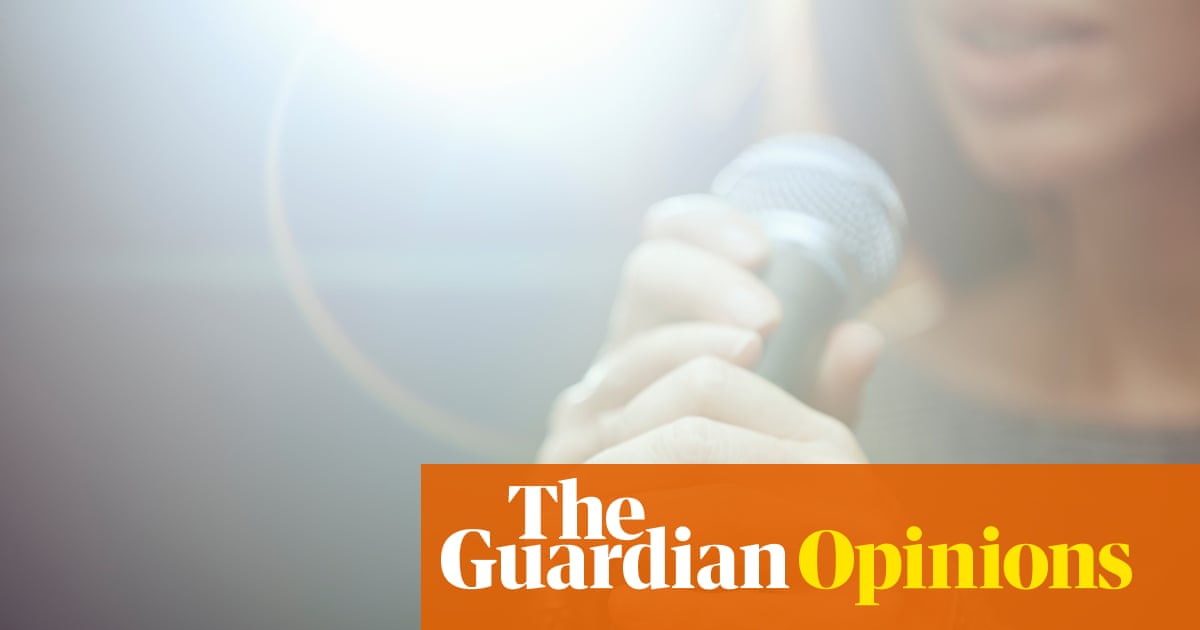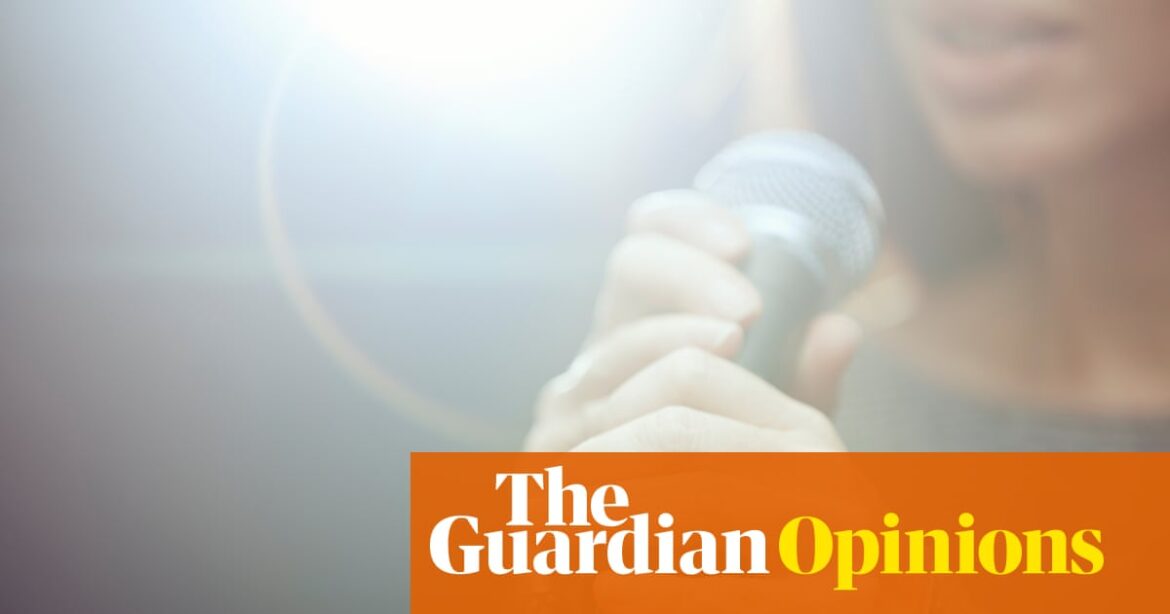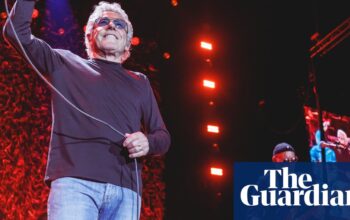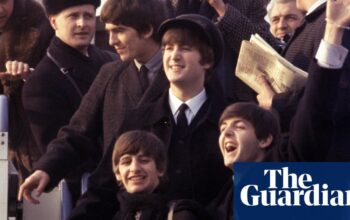
When I saw the email from my neighbour asking whether I’d like to audition to sing in the rock band he played in, my body froze at the idea. My brain began drafting a reflex “Thanks, but no thanks” response. I thought: You haven’t sung in years. You’re too old.
As a petite, mid-50s woman, I’d been resigning myself to that invisibility we’re told comes for us. I still hid my grey hairs beneath varying shades of red, but I’d swapped my vintage fashion for hoodies, T-shirts and jeans. I stayed home more and generally took up less space.
But as I was pondering this invitation, I remembered eight months earlier, when my skull met the footpath after I fell while walking our anxious rescue dog. How lucky I was to sustain only a mild concussion. A gutsier part of me stirred. You may be older, I thought. But you’re not getting any younger. I said “Yes” and hit send.
I’d wanted to sing in a rock band since I saw Suzi Quatro on Countdown when I was eight. By adulthood, my performance dreams seemed less realistic. Instead, I became a music journalist for some years.
While I’d dabbled in singing through my 30s and 40s, at karaoke and amateur shows, I hadn’t sung with a live band. When I joined The LangLangs, I was still having physiotherapy for post-concussion vertigo and balance problems but I was determined, so I returned to singing lessons and karaoke to hone my voice and performance skills. I fumbled through, rehearsing the band’s mix of garage rock, original songs and new wave covers, as I shared vocals with the lead guitarist.
I have what my singing teacher calls a light voice, which makes being heard over live guitars and drums more challenging than over a backing track. Working with her, I’ve learned that your voice is more than the sound you make with your vocal cords – it’s a whole-body instrument. Proper vocal technique helps me project my voice more, and focusing on my posture and breathing can alleviate chronic back pain from my scoliosis.
After the head injury, I’d noticed my memory waning further. More lost words; more “why did I come into this room?” My neurologist wasn’t worried. She was thrilled when I said I’d joined a band, telling me: “Your brain’s like a teenager – it needs excitement.” Her analogy prompted me to search for studies into the effect of music and singing on concussion recovery, and for brain health in ageing. I found plenty.
There’s evidence that continuing to play music or sing in later life improves the brain’s executive function, including skills like planning and memory. The social benefits of singing in groups or choirs can enhance brain health and decrease the stress hormone cortisol. Music therapy has been shown to help brain injury rehabilitation too. It enhances neuroplasticity and protects against brain atrophy and cognitive impairment. Science proves the saying, “Music keeps you young”, and with dementia the leading cause of death among Australian women, I’ll keep singing for as long as I can.
After seven months of fortnightly rehearsals, I played my first gig with the band at Sydney’s Moshpit. Stepping on to the low stage, I grabbed the mic stand and clung on to steady myself from the nerves. My other arm dangled, limp, at my side. Peering out to the crowd in the darkness, I smiled and waited for my cue to start singing our cover of The Motels ballad, Total Control. I hit the high notes fairly well, and wobbled on the sustained notes. For Blondie’s Rip Her to Shreds, I let more personality through, with eye rolls, scowls and hand gestures to match the scathing lyrics. At one point, I turned to look at my bandmates and, catching their eyes, I also caught the energy buzzing between us. As cliched as it sounds, it was electric.
Being socially anxious and nudging 151cm, I hardly scream “frontwoman”. I wear comfortable shoes on stage, and my dance moves might put my back out. But when I see other older women fronting bands in Sydney’s music scene, I feel part of a community and inspired to stay vibrant. I look to female music idols from my youth who still rock it live: Quatro and Debbie Harry in their 70s, Shirley Manson from Garbage in her 50s. I’ll never be as cool as them, but with seven gigs under my belt, I’m excited to continue – for both the creative connections and my brain health.
Sometimes I get stage fright, forget lyrics and hit bum notes. Sometimes I nail it. But it’s not about perfection. It’s about the encouragement and camaraderie from my bandmates, and the joy of making music that gets people dancing.
-
Virginia Muzik is a Sydney-based freelance writer
Source: theguardian.com



